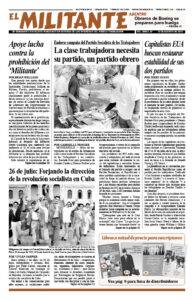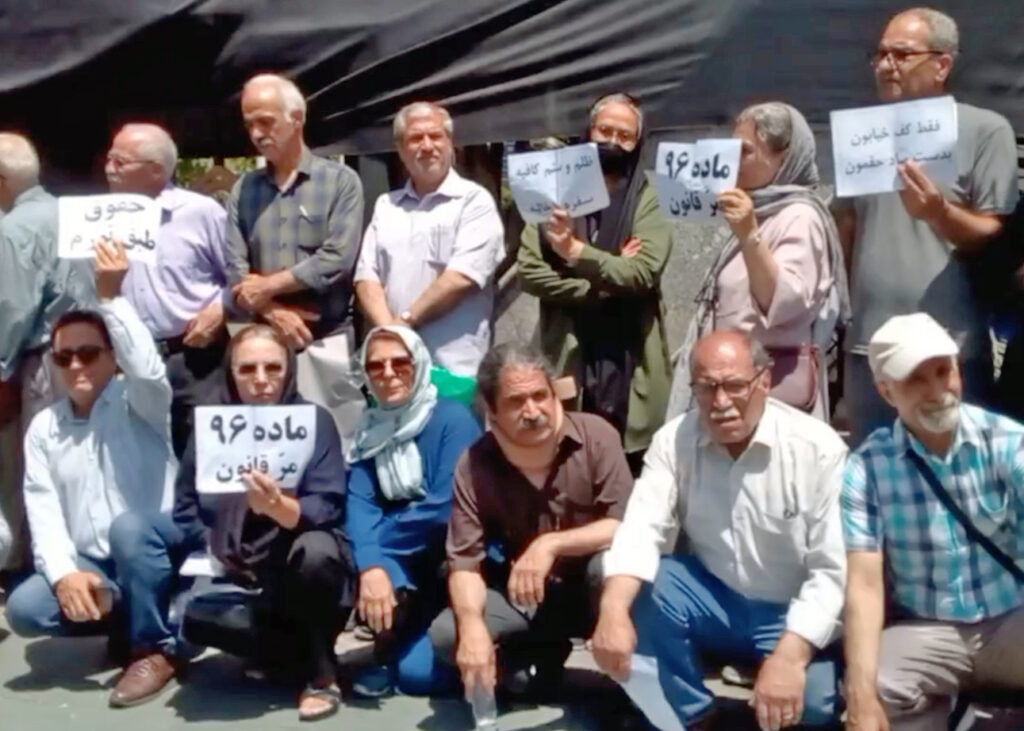Growing numbers in Iran — including prisoners, retirees and unionists — are demanding an end to the death penalty.
“Execution is a medieval and irreversible sentence that can never improve the conditions of society,” Reza Sadeghi wrote July 25 on the internet site of the Coordinating Council of Iranian Teachers Unions.
He noted that regardless of whether or not the death penalty is for “political and ideological” charges or for crimes such as murder or drug trafficking, those accused “are condemned in an unfair trial process.”
As of July 22, at least 268 people have been executed in Iranian prisons this year, according to Iran Human Rights, based in Oslo, eight over the July 20 weekend alone. The counterrevolutionary capitalist regime in Iran carried out 853 executions in 2023, the highest number in any country in the world outside of China. Those executed come disproportionately from oppressed nationalities, including Kurds, Baloch and Arabs.
Weekly Tuesday hunger strikes by prisoners that began in February demanding an end to the executions have expanded to at least 14 prisons. “When the government cannot respond to the just demands of the people,” says a letter from inmates at Ghezel Hesar prison in Karaj, it uses executions “to create a roadblock against future protests and uprisings of the oppressed.”
Sharifeh Mohammadi, a former member of the Coordinating Committee to Help Create Labor Organizations, was recently sentenced to death by a judge in the northern city of Rasht. The government charged her with “armed rebellion against the state,” and claims she is a member of Komala, a banned Kurdish political party. Her family says the charge is false. There are reports that she was tortured in prison after her Dec. 5 arrest and spent months in solitary confinement.
Independent unions of teachers, sugar cane workers, oil construction workers, bus drivers, metal workers and several retiree associations have joined the campaign demanding her release, as have unions in Australia, Canada, France, Iraq and Denmark.
At weekly protests of retirees to demand higher pensions, participants, like the one above in Kermanshah July 14 have also demanded freedom for Mohammadi and other political and union prisoners.
A statement calling for the release of Rasoul Bodaghi, a leader of the Teachers Coordinating Committee, was read at a demonstration of about 75 people in Kermanshah July 25. “He never complains about his sufferings, but about the violation of the rights of teachers and students, the lack of modern and fundamental education in Iran, and educational inequalities,” the statement said.


